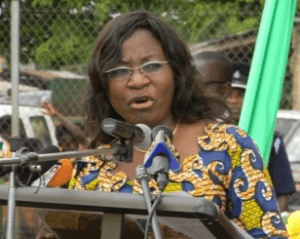Infrastructure deficit not making Ghana competitive – AfDB Rep

Despite recording an impressive economic growth in recent times, gaps in the infrastructure sector is said to be a major obstacle in making Ghana competitive.
According to Mrs. Marie-Laure Akin-Olugbade, Resident Representative of the African Development Bank (AfDB), Ghana Country Office, in spite of Ghana’s impressive growth trajectory over the last decade, “infrastructure deficiencies remain a major concern and obstacle to competitiveness.”
The AfDB Resident Representative gave the remarks at the Canada Trade Mission meeting in Accra January 31, 2013. The meeting was to highlight some key challenges in Ghana’s infrastructural sector and the opportunities available.
Mrs Akin-Olugbade cited the 2012 Global Competitiveness Report (GCR) in which inadequate supply of physical infrastructure ranked as Ghana’s 5th most important weakness, meaning the country placed far behind the best performing countries in Africa in terms of the quality of infrastructure.
To maintain the current growth rates, the AfDB official noted that the country needs funds ranging from $1.8 billion to $2 billion annually to fill the infrastructural gap.
Highlighting some of the infrastructural challenges facing Ghana, Mrs. Akin-Olugbade noted that the road network in the country seems adequate but the “relative quality of roads is poor (only 41% is rated as good), rural connectivity is poor and major urban centres in the country are heavily congested.”
She also indicated that there are some major road development projects to be undertaken in the country and they include the Eastern and Western Road Corridor, the Kwame Nkrumah Circle Interchange Development Project and the Ring Road Development Project, both in Accra.
Mrs. Akin-Olugbade stated that infrastructure still remains a top priority in Africa given its strong correlation to growth and prospects of eradicating poverty.
“The needs are substantial, as a result of population growth on one hand and the urban migration on the other,” Akin-Olugbade said.
She added that the continent’s infrastructure expenditures only represent 4% of GDP compared with 14% in China. According to her, as a result of this infrastructure deficit, which is estimated at $100 billion a year, for both investment and maintenance, “Africa’s GDP is held back by 2% every year.”
She also added that transportation costs increase the price of African goods by 75%.
By Ekow Quandzie
